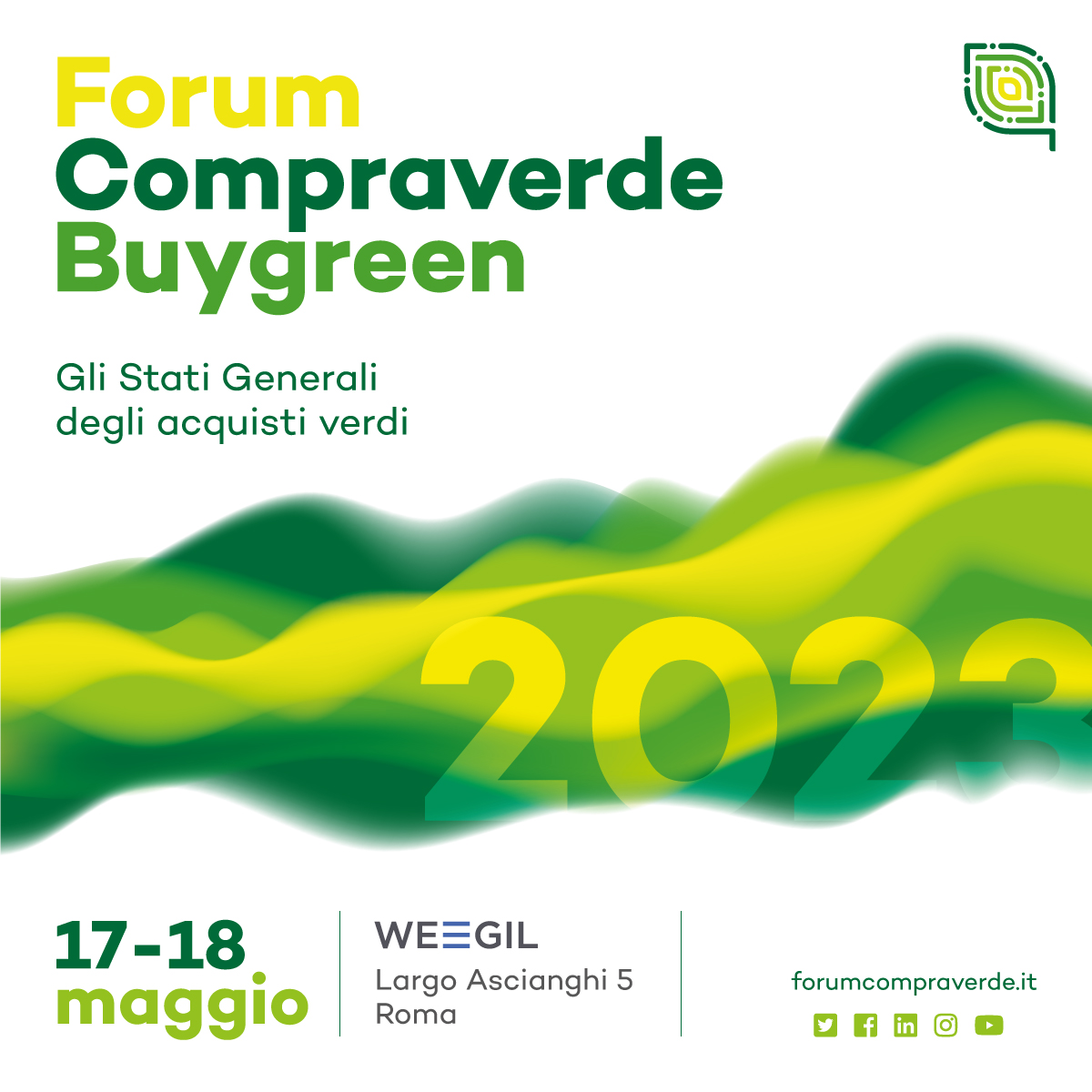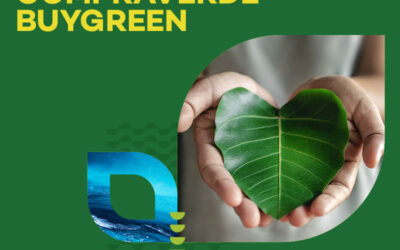Forum Compraverde Buygreen, the leading event in Italy and Europe for public and private Green Procurement policies, projects, goods and services, promoted by Fondazione Ecosistemi will be held on May 17 and 18 in Rome, at Palazzo WeGil in Largo Ascianghi 5.
The key role of public procurement in policies for decarbonization, circular economy and biodiversity protection will be the focus of the two-day event.
“Change the purchases not the climate” is the opening theme of the proceedings with the aim of combining the new Public Contracts Code, in force since July 1, which keeps the role of Green Public Procurement and Environmental and Social Criteria intact, with the climate alarm issued by the Sixth Assessment Report on Climate Change. It is an urgent call from the Forum’s initiators for all stakeholders to commit to implementing the green conversion of production and consumption patterns to reduce the likelihood of serious climate change.
“We are calling on all operators to proceed as soon as possible with the implementation of the Minimum Environmental Criteria (CAM), which are now necessary for compliance with the principle of ‘do no significant harm to the environment (DNSH)’ envisaged by the projects financed with the PNRR. The Forum tackles at 360° the role of GPP in our country in order to strengthen its institutional capacity for dissemination and adoption of CAM in public procurement and not only through conventions and conferences, but also with training sessions dedicated to legislative news, projects and good sustainability practices,” said Silvano Falocco, Compraverde Buygreen’s Director.
PNRR, the DNSH (Do No Significant Harm) principle and the ecological transition are the threads running through the work of the Forum, which sees for two days leading experts in the field, politicians, public and private authorities in direct confrontation.
Among the many themes articulated during the proceedings: the role of Green Procurement in our country’s 50 Food Policies, with particular reference to mass catering, which is now worth 6 billion euros in Italy.
With only a few months to go before they come into effect, two sessions of the Forum’s proceedings are aimed at CAM events with the presentation for the first time of the We green Catalog entirely dedicated to companies that make green products to support events and of a project aimed at training the performing arts sector in environmental sustainability.
Climate Action Plans and Green Procurement: Italy’s 9 Cities for Climate Neutrality is the title of the conference dedicated to the role of procurement in construction, green and waste management, mass catering and public transport in reducing or offsetting CO2 emissions in cities. Cities today are home to 75 percent of the European Union’s population, consume more than 65 percent of the world’s energy, and cause more than 70 percent of CO2 emissions. The focus is particularly on the nine Italian cities, Bergamo, Bologna, Florence, Milan, Padua, Parma, Prato, Rome and Turin, which are participating in the European Mission “100 climate-neutral and smart cities by 2030” to achieve climate neutrality by 2030.
Also in the focus of the event will be Sustainable, Inclusive and Healthy Schools: inclusive and universal building CAM and design with the presentation for the first time of the guidelines “Sustainable Architecture for Inclusive Pedagogical Models. Design Criteria for Preschools, Primary and Secondary Schools.” It is a tool to help integrate universal design principles and on national and international standards for school design to raise practitioners’ awareness of environmental sustainability, healthfulness, inclusiveness and the 7 principles of Universal Design.
During the two-day event, we highlight in particular the workshops: how to realize low-impact buildings in compliance with minimum environmental criteria and the DNSH principle and how to enhance migration background in procurement, and the working table for promoting policies for the introduction of a comprehensive approach to healthy and sustainable food in schools with the participation of the European Buy Better Food campaign.
Legambiente and Fondazione Ecosistemi present the 6th Report of the Green Procurement Observatory, with data on the application of CAM in the procurement of goods, services and works by capital cities, municipalities, Park Authorities, Local Health Authorities, central purchasing bodies and, from this year, Metropolitan Cities. A comprehensive overview of the best experiences, critical issues, solutions and paths to be taken to make GPP truly mandatory for the ecological conversion of the economy.
The GPP Academy, a benchmark in training, offers live streaming of 30 training sessions on specific topics, which at the end of the proceedings will be available on the Forum website.
There will also be in this edition the Compraverde 2023 Award to the best Italian Green Public Procurement experiences in the sections: Green Call, GPP Policy, Green Canteen, Vendor Rating and Sustainable Procurement, Green Culture, Green Building and Social Procurement.
The event can also be followed by live streaming at www.forumcompraverde.it.
Registration is open HERE.
Forum Compraverde Buygreen is promoted by Fondazione Ecosistemi with the patronage and participation of the Ministry of Environment and Energy Security, Regione Lazio and Roma Capitale in partnership with Legambiente, Agende 21 Locali Italiane, Confindustria, ALI – Autonomie Locali Italiane, Fairtrade, Confcooperative Lavoro e Servizi.
The two-day program is HERE!




